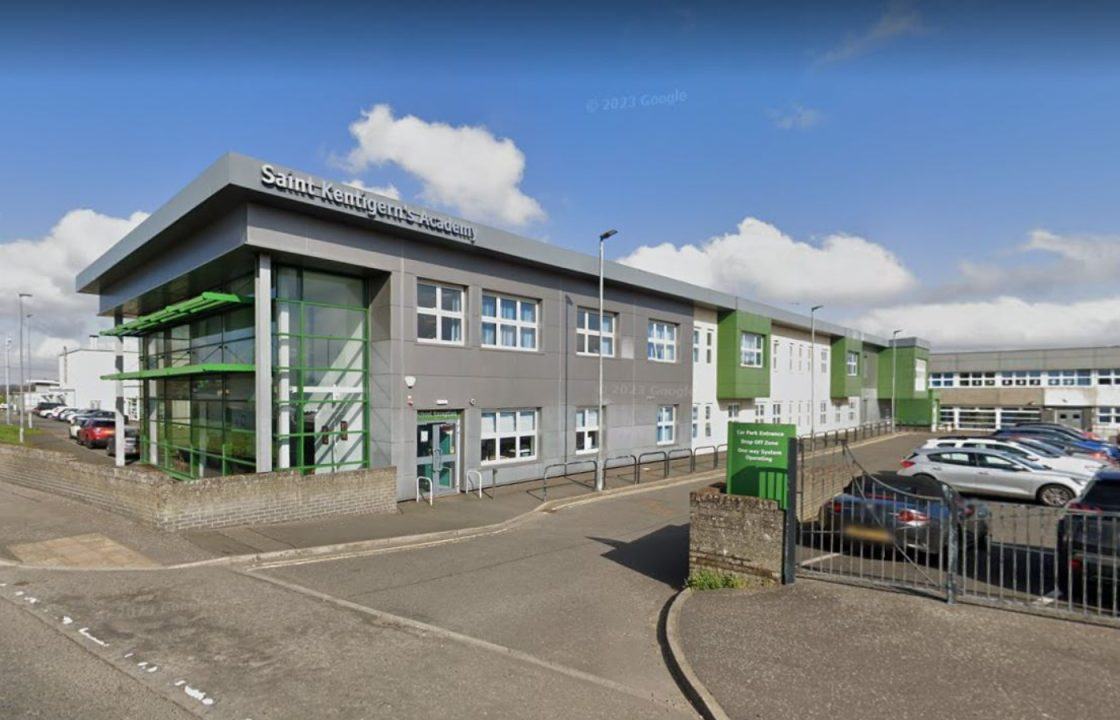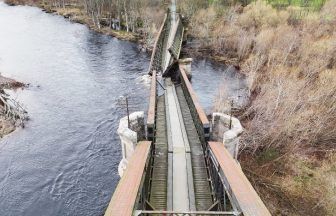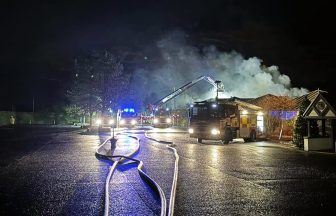It is unsustainable for the UK Government to refuse to provide new funds for devolved administrations to replace potentially dangerous concrete, Scotland’s Social Justice Secretary has said.
At least 40 schools in Scotland have been confirmed to have collapse-risk reinforced autoclaved aerated concrete (Raac) so far, and the Scottish Government has pledged to “spend what we need to spend” to ensure buildings are safe.
Shirley-Anne Somerville took aim at Prime Minister Rishi Sunak and Chancellor Jeremy Hunt over the announcement that there will be no new cash for the concrete crisis, despite previously saying the UK Government would “spend what it takes”.
In a ministerial update in Holyrood on Thursday, Somerville said: “The First Minister has been clear that while we don’t have contingencies to spend on Raac we will of course spend what we need to spend to ensure that our buildings are safe for those that use them.
“I was pleased to see the Chancellor seemingly commit over the weekend that the UK Government will spend what is needed on this, but the more recent briefings coming which suggest there will be no new money are deeply worrying.
“It is simply not sustainable for the UK Government to say that no new money will be made available.
“The UK Government cannot put their head in the sand. New capital money has to be made available, including to the devolved governments to allow us to take any action that may be required.
“Anything else would be a dereliction of duty from the Prime Minister and the Chancellor.”
She also accused UK ministers of spreading “unnecessary alarm amongst parents, staff and children”, by announcing more than 100 schools in England would close or partially close, without communicating the change with devolved governments who also have the substance, which was widely used in buildings from the 1950s to 1990s.
She denied the Scottish Government delayed taking action when it knew of the concrete concerns years ago.
Scottish Conservative MSP Craig Hoy asked Ms Somerville why the Scottish Government waited 18 months before taking action, to which she replied: “There has been no delay on this.”
Scottish Liberal Democrat leader Alex Cole-Hamilton said: “If ministers were really across this problem, don’t you think that Parliament and the public would have been told sooner that at least 40 schools and an untold number of hospitals contain this potentially lethal concrete.
“Ministers were nowhere near understanding this. No money was put aside. Instead, Liberal Democrats, not the Government, were the first to lay bare the scale of this problem.”
Ms Somerville replied that national and local government in Scotland had been “quietly getting on with the job”, unlike the “rigmarole” from the UK Government.
“To say that nothing is being done is, again, disingenuous and I would point to some of the projects that have already been undertaken through Leip (Learning Estate Investment Programme) phases one and two.”
Earlier, Humza Yousaf said during First Minister’s Questions that applications to replace or refurbish schools through Leip would be considered “through a Raac lens”, after five schools which had applied to the scheme were confirmed to have the material.
In Scotland, part of the St Kentigern’s Academy estate in Blackburn has been closed, including the kitchen and dining area, following the discovery of Raac, while Preston Lodge High School in East Lothian has also closed impacted areas.
A UK Government spokesperson said: “The Scottish Government is well-funded to deliver on its devolved responsibilities. The UK Government is providing a record £41bn per year settlement – the largest since devolution.
“The renewed Fiscal Framework also gives the Scottish Government greater certainty and flexibility to manage its Budget and deliver high-quality public services for Scotland and its people.”
Follow STV News on WhatsApp
Scan the QR code on your mobile device for all the latest news from around the country


 Google Maps
Google Maps























